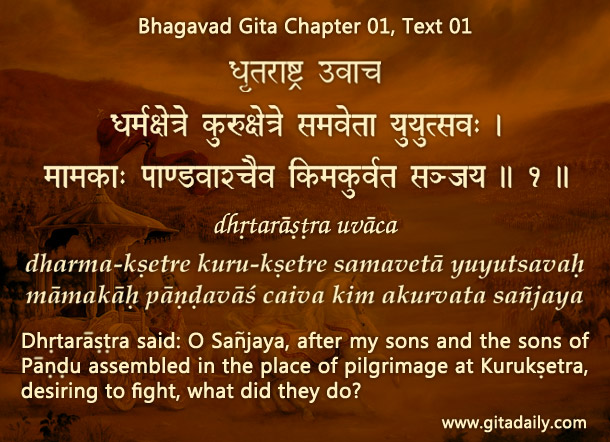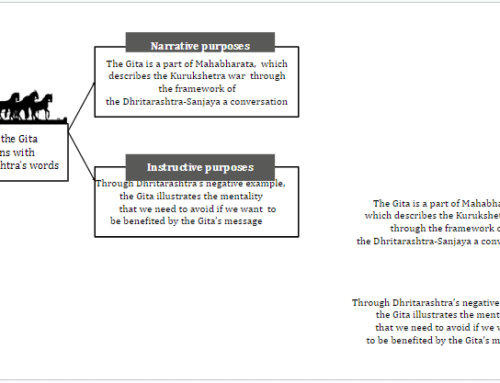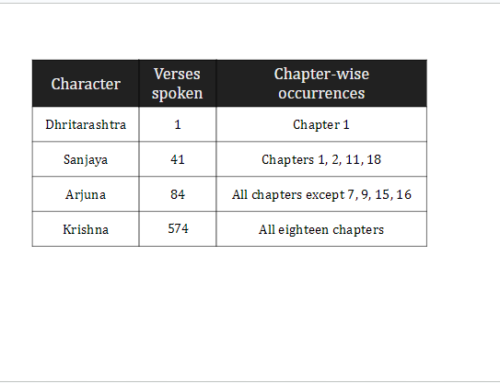A question that contains the answer within itself raises questions about the question. For example, suppose someone asks, “After the diners sat down at the restaurant table for dinner, what did they do?” “What a dumb question!” we might say, “Obviously, they ate.”
But suppose we heard such a question as a part of a learned conversation. That would make us wonder whether something else is afoot. Maybe the questioner knows that there’s a bomb placed under the table and wants to know whether it exploded or was defused. Thus, a self-answering question points to factors beyond the self-evident.
The extraneous factor – the bomb under the table – is dharma.
Such a question begins the Bhagavad-gita (01.01), wherein Dhritarashtra asks: “After the Kauravas and Pandavas assembled for fighting, what did they do?” The extraneous factor – the bomb under the table – is dharma, as is hinted in the question’s first word: dharma-kshetre (at the place of dharma). Knowing that the Kauravas are adharmic, whereas the Pandavas are dharmic, Dhritarashtra is apprehensive that thoughts of dharma, aroused by the vibrations at the dharmic place, may adversely affect his sons’ intentions and prospects. Through the question, he implicitly enquires whether any such thing happened.
That’s what did happen, but in a way different from Dhritarashtra’s apprehension. Duryodhana was too self-centered to bother about dharma, but the dread that the imminent fratricide was adharmic overwhelmed Arjuna. To allay his concerns, Krishna spoke the Gita, analyzing the various levels of dharma and establishing the supreme dharma of pure devotion. Thus, the Gita’s narration demonstrates the import of its first word – at the place of dharma manifested the divine message of dharma from the lips of the divine.
Understanding this message induced such a resolute determination in Arjuna that, as the Gita’s last verse (18.78) prophesies, the determination itself, being harmonized with the divine will, assured supreme success.

Explanation of article:
http://www.youtube.com/watch?v=aXsxXvY2yA0



Hare Krsna Prabhuji,
When we put together Gita’s first word “dharma” and Gita’s last word “mama” (18.78), do they signify anything such as “my dharma”, or “my eternal religion”?
Interesting correlation. I haven’t seen any acharya correlate it like that, though. Still, to meditate deeply on the Gita is always good.
ys
ccdas
Had heard of dining analogy in relation to 1.1 before. But, “the bomb under the table” part was something new, extra, interesting & enlightening! Thanks.
I am greatly inspired by your understanding of Bhagavad Gita.
Not only is your understanding deep, but your way of presentation is unique. You ask unique questions to your readers and trigger their thought process. Otherwise reading just gets superficial. Wonderful analysis!